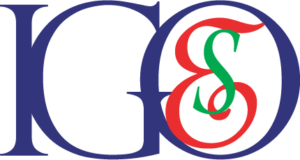Inner Game Corporate Offerings
Building Teams: The Inner Game Way
 For over twenty years, Tim Gallwey has been part of the development of a new and very exciting training for people who work together in high-performance teams. He has been collaborating on this work with psychologist and team training expert Dr. Valerio Pascotto – president of IGEOS, Inner Game Effective Organizational Systems.
For over twenty years, Tim Gallwey has been part of the development of a new and very exciting training for people who work together in high-performance teams. He has been collaborating on this work with psychologist and team training expert Dr. Valerio Pascotto – president of IGEOS, Inner Game Effective Organizational Systems.
More than 2,000 people have already participated in this training and so many have remarked at the profound transformation in their mindset and their capabilities they have seen ever since.
Inner Game has formed a partnership with Effective Organizational Systems to offer these trainings more widely. The new enterprise is IGEOS.
The Challenge of the Team Vehicle
High-performance teams are, without a doubt, the engines that drive success in today’s business environment. Though much has been written on team theory, and there is no scarcity of experiential team trainings contrived to create “team bonding,” the most efficient pathway to team effectiveness has remained elusive.
Variables such as group pressure, social and self-image, groupthink, management of diversity, motivation, inclusiveness and empowerment have all been called critical factors for the success or failure of a team. However, truly transforming a group of even the most competent individuals into an ongoing high-performance team cannot be accomplished by teaching team theory or by trying to engineer an emotion-based camaraderie.
The weakness of most team building interventions is simple: they do not cut to the core of what keeps intelligent people from functioning at their best in teams. The widespread consequence has been that corporate teams, their many meetings, and the cumbersome decision-making process tend to be viewed, not as the engines of corporate success but rather as necessary evils that often support mediocrity.
Building Teams: The Inner Game Way
 For over twenty years, Tim Gallwey has been part of the development of a new and very exciting training for people who work together in high-performance teams. He has been collaborating on this work with psychologist and team training expert Dr. Valerio Pascotto – president of IGEOS, Effective Organizational Systems.
For over twenty years, Tim Gallwey has been part of the development of a new and very exciting training for people who work together in high-performance teams. He has been collaborating on this work with psychologist and team training expert Dr. Valerio Pascotto – president of IGEOS, Effective Organizational Systems.
More than 2,000 people have already participated in this training and so many have remarked at the profound transformation in their mindset and their capabilities they have seen ever since.
Inner Game has formed a partnership with Effective Organizational Systems to offer these trainings more widely. The new enterprise is IGEOS.
The Challenge of the Team Vehicle
High-performance teams are, without a doubt, the engines that drive success in today’s business environment. Though much has been written on team theory, and there is no scarcity of experiential team trainings contrived to create “team bonding,” the most efficient pathway to team effectiveness has remained elusive.
Variables such as group pressure, social and self-image, groupthink, management of diversity, motivation, inclusiveness and empowerment have all been called critical factors for the success or failure of a team. However, truly transforming a group of even the most competent individuals into an ongoing high-performance team cannot be accomplished by teaching team theory or by trying to engineer an emotion-based camaraderie.
The weakness of most team building interventions is simple: they do not cut to the core of what keeps intelligent people from functioning at their best in teams. The widespread consequence has been that corporate teams, their many meetings, and the cumbersome decision-making process tend to be viewed, not as the engines of corporate success but rather as necessary evils that often support mediocrity.

Re-defining “Team”
The initial trouble is our tendency to overcomplicate the concept of what “team” is. In reality, a team is simply a group of people that have come together to pursue a common goal. When prevailing social norms, corporate politics, or individual agendas are brought into what a team is expected to be, they often distract from the main purpose.
Our Credo
The best hope for creating high-performance teams lies in encouragement of the innate need of all human beings to push towards excellence and continuous learning. This universal drive is an essential part of our evolutionary make-up. At the same time, humans also have the greatest tendency to interfere with both their individual and collective potential. Unless a team can summon the courage and clarity to recognize counterproductive habits and patterns, they can never hope to make the changes necessary to reach their true potential.
The IGEOS Approach: A Look in the Mirror
The IGEOS is an integration of three decades of work in the field of individual performance and coaching, The Inner Game, with Effective Organizational Systems, a leader in the field of organizational and team performance. The essence of our approach is to hold an accurate mirror to each team that reveals not only their incredible potential, as well as the surprising ways we tend to interfere with that greatness. A glimpse like this can be very confronting, but we believe the inherent honesty in this experience is the key to the motivation and clarity needed to transform a team. Once the subconscious and unproductive habits in collaborating have been revealed, they rarely survive long in the light of new team awareness.
Common Team Pitfalls
Over the years in helping teams be effective, IGEOS has been able to predict most of the major pitfalls that lure individuals and teams away from the pathways toward their stated goals.
Individual Interferences
Evaluation apprehension: The fear of being evaluated and judged which causes defensiveness and dishonesty in team communication and resistance to learning.
Social loafing: Letting others do the work resulting in lack of participation. Abdication and loss of responsibility/accountability.
Playing Politics: The team member chooses personal preferences and influence over team effectiveness.
Unwillingness to clarify ambiguities: Clinging to the familiar instead of acknowledging what is unknown. Fear of uncertainty results in making ungrounded assumptions instead of prudent exploration in the interest of avoiding the discomfort of uncertainty.
Lip service: Not honoring agreements.
Unwillingness to communicate: Including the failure to listen; the failure to give adequate thought before speaking; a reluctance to be concise; a withholding of needed information or questions.
Group Interferences
Group Polarization: Two opposite positions are put forth and team members polarize. The result is a paralysis in decision-making and/or the withdrawing from participation.
Poor decisions: The group usually out of frustration may agree to a course of action that individually none of the team members would have endorsed.
Mediocre Thinking: The group often seeks to reach consensus based on maintaining harmony rather than on the most productive solution.
Group Fragmentation: The group fragments when work requires sub-teams. Allegiance shifts to the sub-team with little or no awareness of overarching goals and impact on others.
What IGEOS Offers
IGEOS offers three basic interventions to help teams re-form themselves into capable vehicles for corporate success:
A Team Assessment
The first step toward increasing the effectiveness of your team is a thorough assessment of the team and its team members. The assessment provides a quantitative and narrative evaluation of how the team and individual members are performing against the following basic criteria: the clarity and awareness each member has of the common goal.
1. Motivation to fulfill the common goal.
2. The acceptance of ownership, responsibility, and role.
3. The awareness of pitfalls that sabotage the team.
4. The awareness of factors of team cohesiveness.
5. Understanding and acceptance of team strategy, agreements, and performance measures.
The team assessment can be of great value in itself, but it also provides the insight and often felt need for further team training.
Team Training: A Simulator
IGEOS offers a three and five-day intensive team training, which function as a simulator for up to 100 participants at a time. Team members engage in a series of simulated team tasks designed to mirror as if in slow motion the best and the worst of their team behaviors and attitudes.
The simulator provides a learning environment safe enough to explore new behaviors and challenging enough to decide to make real and lasting changes.
The simple goal of the training is to enable each team member to shift from an individual to a team mindset. While working together on the team tasks, participants have frequent opportunities to recognize the gap between thinking like and individual and thinking as a team member, and to do whatever it takes to close that gap.
The simulator makes it obvious when someone acts from an agenda that diverges from one of team success. It clearly communicates the unrelenting requirement of discipline, awareness and commitment. One simple example: about one hour into the training, the facilitator may ask the group to decide if it is time to take a break. Invariably, at least a few reply with a “no”, before realizing that they could only be speaking from an individual perspective while presuming to be answering for the entire team.
As individual and team obstacles arise, each team-member is asked to accept full responsibility making the necessary personal changes as well as for the success of the team. The role of the training facilitator is to be rigorous in holding to the highest standards as team members become more conscious of their unproductive habits and explore a new team awareness, responsibility and commitment.
An Artful Coaching Plan
In the process of taking responsibility for team success, participants not only learn to monitor their own team behaviors, but also learn to coach other team members.
To ensure that understanding and changes that have taken place have the best chance to produce the desired results back in the workplace, IGEOS offers a coaching program, which utilizes both internal and external coaches.
The coaching methodology is the same one participants have become familiar with during the training; Awareness, Responsibility, and Commitment.
Coaching becomes a practical and time-effective way of keeping the principles and agreements of the training sustained and evolving under the ongoing pressures of real work situations.
Connect with the Inner Game
We would love to hear from you!
Request a consultation. Send an inquiry.
Share your feedback and questions...
More Info
Tim Gallwey lives in Thousand Oaks CA, and when he isn’t touring the globe on speaking engagements, he’s facilitating workshops and The School in LA, and working on ways to make the applications of the Inner Game more accessible internationally to corporations and various conventions on coaching, learning, and peak performance and most importantly continuing to learn more and more in his own understanding the inner dimension of his own life..
Address:
14011 Ventura Blvd Suite 502, Sherman Oaks CA 91432


